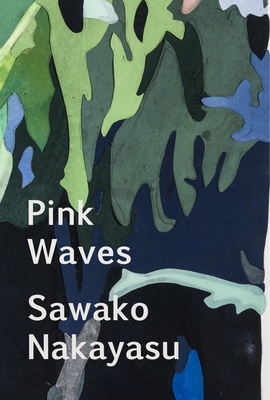Pink Waves (Paperback)
$19.95
On Our Shelves Now
Description
A poem in conversation with literature and written during a durational performance.
Written in loose sonata form, Pink Waves is a poem of radiant elegy and quiet protest. Moving through the shifting surfaces of inarticulable loss, and along the edges of darkness and sadness, Pink Waves was completed in the presence of audience members over the course of a three-day durational performance. Sawako Nakayasu accrues lines written in conversation with Waveform by Amber DiPietro and Denise Leto, and micro-translations of syntax in the Black Dada Reader by Adam Pendleton, itself drawn from Ron Silliman’s Ketjak. Pink Waves holds an amalgamation of texts, constructing a shimmering haunting of tenderness, hunger, and detritus.
About the Author
Sawako Nakayasu is an artist working with language, performance, and translation. She has lived mostly in the United States and Japan and briefly in France and China. Her books include Some Girls Walk Into The Country They Are From, The Ants, and Texture Notes, and she is the translator of The Collected Poems of Chika Sagawa. She teaches at Brown University.
Praise For…
"Perhaps everything about her work can be described as through water: from waves, eddys and ripples. Throughout Pink Waves, Nakayasu’s poems explore boundaries both physical and temporal, as well as the edges of grief..."
— rob mclennan’s blog
"Pink Waves is multiple things at once. As a performance art piece, Sawako Nakayasu’s newest poetic composition considers the shifting roles the reader, writer and spoken-word performer take on in relation to a piece of work; as a written recording of performance artistry, it offers a fresh and moving study on grief and otherness."
— The Japan Times
“Pink Waves deepens my immense admiration for Nakayasu’s poems and translations. Expansive, working across genres, she always pushes her writing into new places. In Pink Waves, she has found another way to rigorously clear a space for herself or, perhaps more accurately, her many selves, attaining a fresh perspective. Registering the world crashing into her life, we hear and learn the different languages that flow around her, as well as encounter references to–and echoes of –Adam Pendelton’s collage text Black Dada, Valerie Solanas’s radical feminist SCUM Manifesto, Sol LeWitt’s ‘Paragraphs on Conceptual Art,’ and Ron Silliman’s groundbreaking Ketjak. She uses collage to give a resilient, changing shape to our relentless influx of chaos, and the resulting feelings of anxiety, passion, anger, and love stirred up in us. Turning detritus into sensuous music, Nakayasu’s greatness arises from [undertaking] ‘Experiments in Joy,’ à la Gabrielle Civil, to find a way to live in the here and now.”
— John Yau, author of Genghis Chan on Drums
“Nakayasu’s Pink Waves is an experience of questions becoming artifacts. The speaker asks: ‘how will i locate expansiveness in touch’? By ‘dreamlight’, a reader is trained, by this speaker, in a process of listening that’s both a ‘pledge of silence’ and the recognition that ‘we come to a limit and stop where it fits.’ Is this ‘genre trouble’? Nakayasu has written a book a writer could read, orienting to the desk, to the ‘passing moment,’ in turn. This is grounding. This is beautiful.”
— Bhanu Kapil, author of How To Wash a Heart
"In a deliberate lyricism of regathering, tethering, and receding precedence, in a perpetual canon that keeps spilling and sifting and replenishing what feels like dancing, in a series of breaks weaving wave and snap into writing that listens, Sawako Nakayasu takes the measure of the enjoyment we derive from sensing and making sense of this wasteland of bandwidth and access. Pink Waves is a delicate instrument. Its spare beauty picks up everything."
— Fred Moten, author of The Universal Machine (consent not to be a single being)

